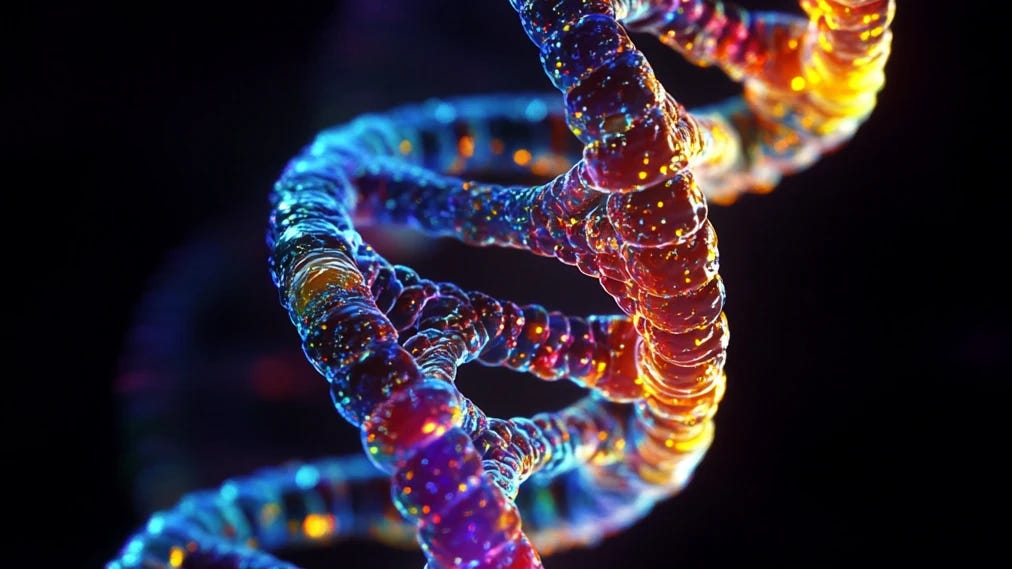Last-minute bid by its co-founder saves 23andMe genetic testing firm
Anne Wojcicki rescues her company in a dramatic race with the clock
• Anne Wojcicki is poised to reclaim her DNA-testing company after her nonprofit TTAM Research Institute topped a competing $256 million bid from biotech firm Regeneron with a $305 million offer.
• The deal marks a dramatic comeback for the 23andMe co-founder, who was twice rejected by company boards when she tried to take the firm private before it filed for bankruptcy in March.
• Privacy concerns loom large as nearly 2 million customers have deleted their genetic data amid fears about what happens to sensitive information under new ownership, sparking congressional hearings and lawsuits from 28 state attorneys general.
Did you delete all your 23andMe data a few weeks ago, the way everyone told you to? Well, as it turns out, that may not have been necessary.
Ever since 23andMe declared bankruptcy and put itself up for sale, privacy advocates were sounding the alarm, fearing what would become of the DNA data on millions of people who have used the service over the years to trace their ancestry. 27 U.S. states and the District of Columbia filed a lawsuit in bankruptcy court to prevent the sale of 23andMe's personal genetic data without explicit customer consent.
All that commotion was because biotech firm Regeneron Pharmaceuticals had put a $256 million offer on the table as 23andMe headed for bankruptcy court, and it looked like consumers’ personal genetic details would wind up in the hands of a for-profit biotech firm that could conceivably sell or trade the data.
“This isn’t just data – it’s your DNA. It’s personal, permanent, and deeply private,” Oregon Attorney General Dan Rayfield said in a press release when the suit was filed. “People did not submit their personal data to 23andMe, thinking their genetic blueprint would later be sold off to the highest bidder.”
Down to the wire
But the skeptics didn’t reckon with Anne Wojcicki, the hard-driving co-founder of the company. She dreamed up the idea of launching a mass DNA gathering venture that would bring together data on millions of people, contributing to genetic research and giving individuals useful information about their personal genetic make-up.
She launched the company launched in 2006, calling on her background in genetic research and investment analysis. "I loved genetics and the idea that you have a code inside of you that interacts in your environment and determines how your body works," she said. "It's absolutely captivating."
She entered the picture again on Friday, announcing that a nonprofit called TTAM Research Institute was bidding $305 million for the company. (TTAM stands for Twenty-Three And Me).
Wojcicki raised the money and put the nonprofit together over the last few months, unwilling to let her creation die. Regeneron could have outbid her but threw in its cards at that point, saying it had had enough. The deal still requires court approval.
"I am thrilled that TTAM Research Institute will be able to continue the mission of 23andMe to help people access, understand and benefit from the human genome," Wojcicki said in a statement.
The potential acquisition represents a remarkable turnaround for Wojcicki, who faced repeated rejections from 23andMe's leadership before the company's bankruptcy filing. She made two previous attempts to take the company private, only to be rebuffed by two different boards of directors. The first board resigned en masse, while the second ultimately steered the company into bankruptcy protection. Her final pre-bankruptcy offer in March was just $40 million, making the current $305 million bid an eye-popping significant escalation.
Struggles still ahead
Much remains to be done to get the company back on its feet. For one thing, it lost about 2 million customers following the bankruptcy filing, about 15 percent of its customer base. It may be able to win them back, but that will require a marketing effort and a whole new set of testing kits, lab analysis and so forth.
There are also legal problems, including the lawsuit filed by the state and questions about whether the 23andMe privacy policy covers transferring the original company’s data to TTAM or whether customers will need to authorize the action.
Besides all of that, there is a more basic problem: the company never achieved profitability. It did not succeed in developing any blockbuster medical treatments through data analysis. More basically, it ran into the vexing problem of repeat business, primarily a lack of same.
Normally, if a company sells someone a service or product that they find useful or informative, the customers will come back for updates or new models. But our genetic make-up doesn’t change, so once customers got their results back, there wasn’t much more to sell them.
23andMe offered family deals and tried to entice customers to buy test kits for Christmas and birthday presents but the number of people clamoring for genetic data is relatively small, at least for now, and some analysts think 23andMe has pretty much saturated the market.
But those who have dealt with Wojcicki express reluctance to beat against her. She comes from an accomplished family and has a wide circle of close friends and influential acquaintances in Silicon Valley. Her parents were both eminent educators. Her two older sisters — former YouTube CEO Susan Wojcicki and Janet Wojcicki, an epidemiologist and physician — are prominent and highly successful.
Wojcicki married Google co-founder Sergey Brin in May 2007 and, though now divorced, they jointly run the Brin Wojcicki Foundation, which supports health-related causes.
If anyone can bring 23andMe back and find a business plan that supports vigorous growth, it’s probably Woncicki. So if you haven’t already canceled, your 23andMe account, it may be worth waiting until the next chapter to decide.



